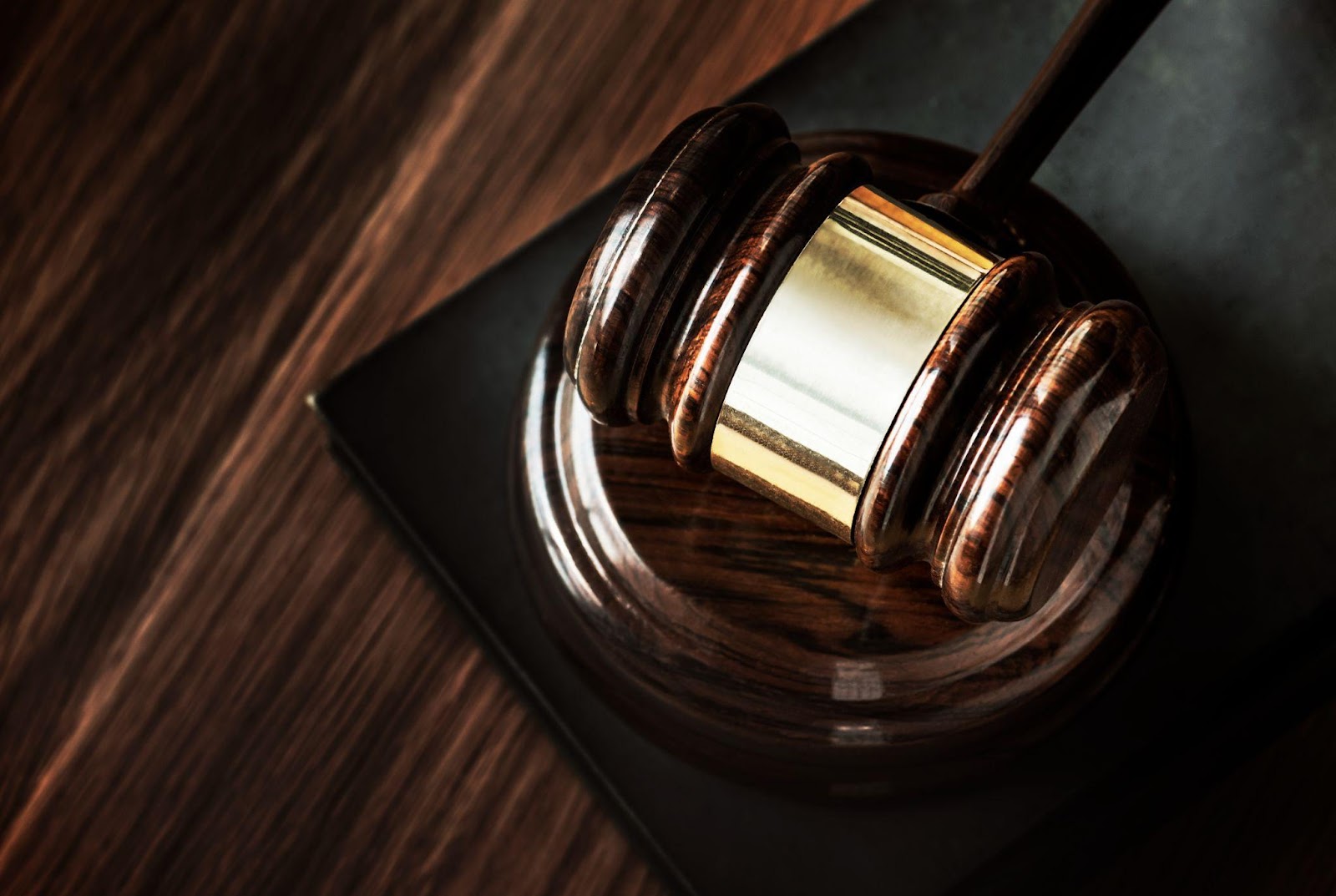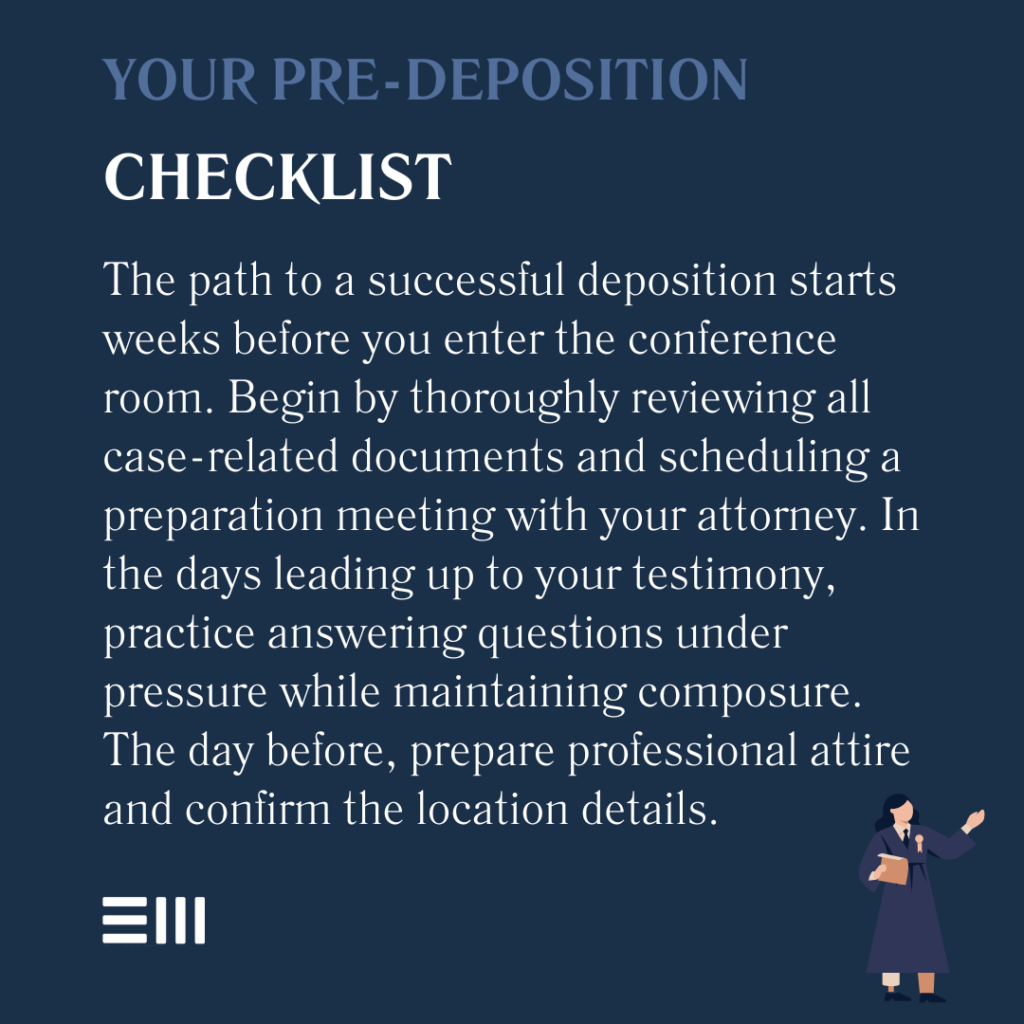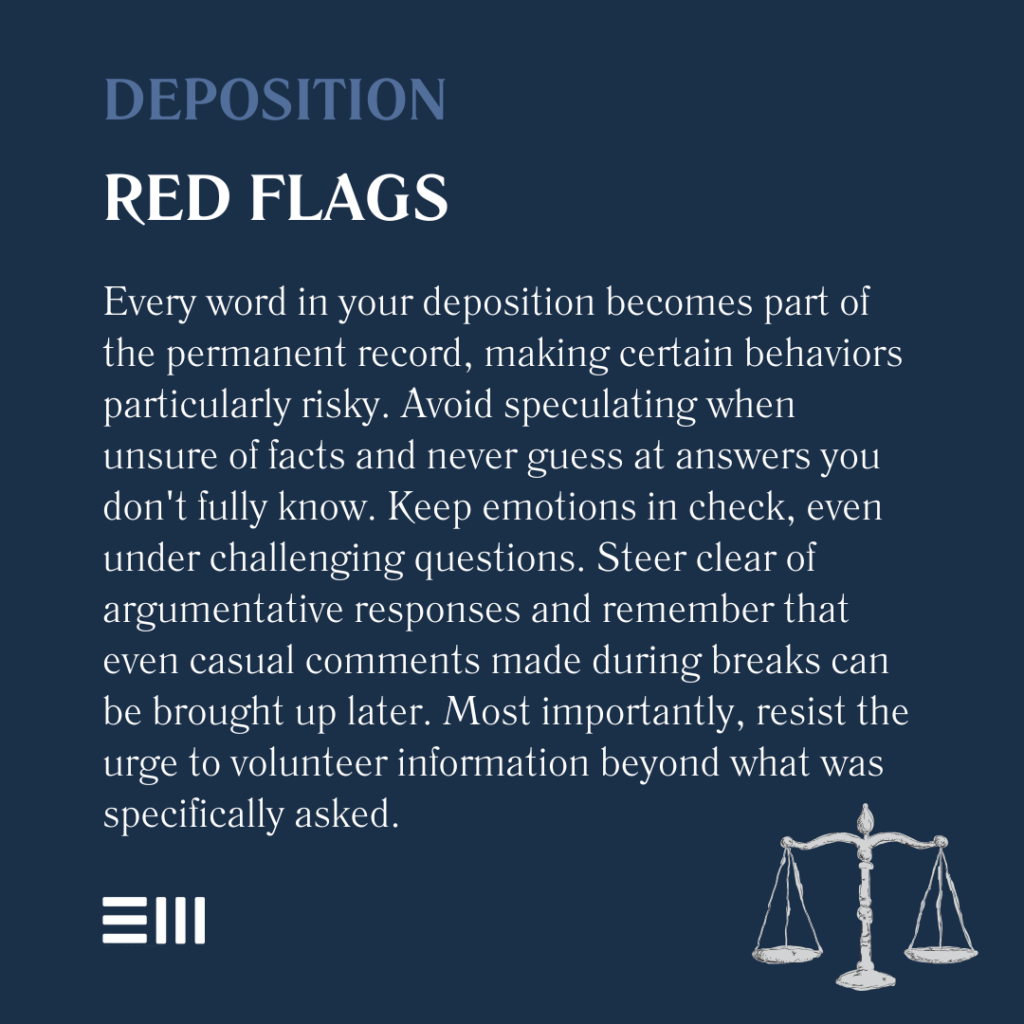
Picture yourself in a quiet conference room, every word you speak being recorded, knowing your answers could shape the entire outcome of your legal case.
While not as dramatic as courtroom scenes from legal dramas, depositions often prove to be the defining moments that make or break cases.
Your sworn testimony, given in that conference room, can open doors to favorable settlements or close them completely.
Like a chess match where every move counts, each answer you provide during a deposition requires careful thought and preparation.
Understanding the Basics of a Deposition
A deposition serves as a formal question-and-answer session where attorneys gather sworn testimony from witnesses before trial.
This preliminary stage helps establish facts, preserve testimony, and often shapes settlement negotiations. Let’s explore the fundamental aspects you need to know before your deposition date.
- The deposition typically takes place in an attorney’s office, not a courtroom setting;
- A court reporter records every word spoken during the session verbatim;
- Your testimony carries the same legal weight as courtroom testimony, with potential perjury consequences;
- Attorneys from all parties involved may ask you questions in turns;
- The session can last anywhere from a few hours to several days;
- Video recordings may be used alongside written transcripts;
- Objections by attorneys are noted but you typically must still answer; and
- The transcript becomes a permanent part of the legal record.
Understanding these foundational elements helps create a solid framework for your preparation.
Remember, while depositions may seem intimidating, they represent an opportunity to present your account clearly and confidently.
Before the Deposition
Thorough preparation in the weeks leading up to your deposition can significantly impact your performance.
Consider these essential preparation steps to build your confidence and readiness.
- Review all relevant documents, including emails, reports, and correspondence multiple times;
- Meet with your attorney to discuss potential questions and strategies for answering effectively;
- Practice answering questions under simulated deposition conditions with various scenarios;
- Get adequate rest in the days leading up to the deposition to ensure mental clarity;
- Familiarize yourself with the location and parking arrangements to avoid day-of stress;
- Prepare appropriate professional attire for the day and have it ready in advance;
- Create a timeline of events relevant to your case for better recall;
- Review any prior statements you’ve made about the case;
- Prepare a list of clarifying questions for your attorney; and
- Plan your schedule to avoid rushing or added stress on deposition day.
Taking these preparatory steps helps reduce anxiety and ensures you’re ready to provide clear, accurate testimony. Remember that preparation isn’t about memorizing answers but understanding the facts thoroughly.

During the Deposition
The actual deposition requires focused attention and careful communication. These strategies will help you navigate the question-and-answer process effectively.
- Listen carefully to each question and wait until it’s completely finished before responding;
- Take a moment to think before responding to ensure accuracy;
- Answer only what is asked without volunteering additional information;
- Maintain a professional and courteous demeanor throughout the entire process;
- Ask for clarification if you don’t understand a question completely;
- Take breaks when needed to stay fresh and focused;
- Speak clearly and at a measured pace for accurate recording;
- Keep your answers concise and to the point;
- Stay calm even when faced with challenging questions;
- Remember that “I don’t know” or “I don’t recall” are acceptable answers when true;
- Avoid absolute statements like “never” or “always” unless completely certain; and
- Request breaks if you feel fatigued or need to consult with your attorney.
Following these guidelines helps maintain control of your testimony while ensuring accuracy and completeness. Remember that staying calm and methodical serves your interests best.
Common Mistakes to Avoid
Understanding potential pitfalls can help you navigate your deposition more successfully.
Here are key mistakes to avoid during your testimony.
- Guessing or speculating when unsure of facts instead of admitting uncertainty;
- Arguing with the questioning attorney or becoming confrontational;
- Providing lengthy, rambling answers that may reveal unnecessary information;
- Discussing the case during breaks with anyone other than your attorney;
- Becoming defensive or emotional when faced with challenging questions;
- Forgetting that everything said is on record, including off-hand comments;
- Attempting to answer questions about documents without reviewing them fully;
- Trying to anticipate where the attorney’s questions are leading;
- Making jokes or sarcastic remarks that may look inappropriate in transcript;
- Volunteering information not specifically requested;
- Using absolute terms when estimates would be more accurate; and
- Failing to ask for breaks when needed.
Being aware of these common errors helps you maintain composure and provide more effective testimony. Remember that avoiding these mistakes strengthens the credibility of your statements.

Frequently Asked Questions About Depositions in Alabama
Understanding common concerns about depositions can help alleviate anxiety and ensure better preparation.
Here are answers to questions that often arise before a deposition.
What Should I Wear to a Deposition?
Professional attire similar to what you would wear to an important business meeting is appropriate. Avoid flashy jewelry or distracting patterns. Conservative colors and styles work best.
How Long Will My Deposition Take?
Most depositions last between 3-6 hours, though some may extend over multiple days depending on the case complexity and the witness’s role.
Can I Speak With My Attorney During the Deposition?
You can consult with your attorney during breaks, but not while a question is pending. Your attorney may object to questions but typically you must still answer.
What if I Need to Change My Testimony Later?
You can make corrections to your deposition transcript, but substantial changes may affect your credibility. Review your transcript carefully when given the opportunity.
Should I Bring Any Documents With Me?
Bring only documents specifically requested or discussed with your attorney beforehand. Never bring additional materials without consulting your attorney.
What if I Don’t Remember Something?
It’s perfectly acceptable to say “I don’t remember” or “I don’t recall” if that’s the truth. Don’t guess or speculate about facts you’re unsure about.
How Should I Handle Hostile Questions?
Remain calm and professional regardless of the question’s tone. Answer truthfully and concisely, maintaining your composure throughout.
Take Control of Your Testimony
Your deposition testimony can significantly impact your case outcome. At Baxley Maniscalco, our experienced attorneys have guided countless clients through successful depositions across Alabama.
Contact our team today to ensure you’re fully prepared for this critical legal proceeding.
Let our expertise help you navigate your deposition with confidence and precision.
Can't find what you're looking for? Search our site below.










